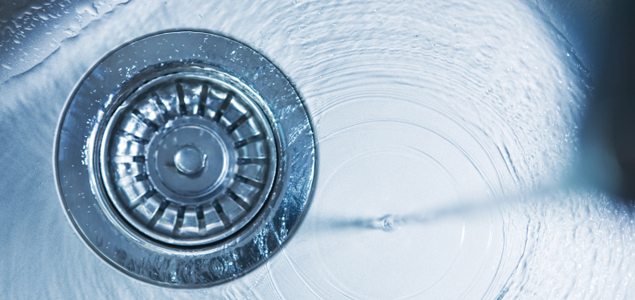It took London sewerage workers three weeks to clear what has been described as a toxic ball of congealed fat the size of a school bus.
The 15-tonne ‘fatberg’ caused havoc in the busy city and threatened to flood the entire district of Kingston with sewerage. Click here to watch the discovery.
Residents of the area first reported signs of a problem in their plumbing after toilets proved difficult to flush. A team of workers was sent out to investigate and what they discovered was a layer of solidified grease and oil that was blocking 95 per cent of the local sewer pipe.
Known to build on the roof of sewers much like stalactites in a cave, the grease build-up is described as a mushy solid that unleashes an ‘unimaginable stink’.
Surprisingly this is not the first time a lump of lard has been found in the underground pipes. Fatbersg are becoming an increasingly common sight, but this particularly large mass does appear to be the largest of any seen before.
London is the site of one of the highest concentration of food business in the country, reportedly producing more than 44 million litres of used cooking oil a year, much of which ends up down the drain.
Wet wipes used increasingly as toilet paper have also caused disastrous results for underground sewerage. Fat and wet wipes were singled out as the main ‘swear abuse culprits’ by Thames Water.
“The wipes break down and collect on joints and then the fat congeals. Then more fat builds up. It’s getting worse. More wet wipes are being used and flushed. It took Hailwood and the guys three weeks to flush this one out with high-powered water jets” Water Thames spokesperson Simon Evans told reporters adding that the almost-completely clogged sewer could have caused dangerous raw-sewerage to pour out of manholes across the suburb.
Environment groups are arguing that the waste fat should be collected and used to generate renewable energy. They say a well-known international fast food chain in London uses more than 60,000 litres of its yearly used cooking oil to create biodiesel which sit hen used to run its fleet of vehicles.
London mayor Boris Johnson agrees that energy converted from the excess waste fat is the way of the future. Just last week called he had already called for the stuff to be used to run London’s buses:
“By capturing it right here in London and turning it into biodiesel we could provide 20% of the fuel needed to power London’s entire bus fleet while saving thousands of tonnes of CO2 and creating hundreds of new jobs. There is huge potential to unlock the value in used cooking oil and turn it to our economic advantage.”
But until this happens Londoners will need to adapt their current waste methods to combat a growing problem. The lesson is one that many other cities in the developing world can learn from.
We went in search of some of the do’s and don’ts when it comes to kitchen waste disposal:
• Do not dispose of animal fats , vegetable oil, lard, grease, butter and margarine, food scraps and dairy products via you kitchen sink. These substances all contribute to blocked drains, “fatbergs” and sewer blockages. Remove any scraps and fat residue using tissues or paper towel and dispose of in the bin. Note that even your waste disposal unit will not remove fats.
• Sanitary towels, wipes, nappies, rags and condoms, while they may breakdown eventually, they do not break down easily. Avoid disposing of them down the drain, instead reserve such items for your lavatory bin. Even when broken down smaller pieces can snag on pipes, drains and the walls of sewers, leading to blockages.
• Cleaning products, pesticides, battery acids, nail polish, motor oil and paints are all toxic waste. You should take extreme caution when disposing of these substances because they do not break down in sewage systems and can pollute rivers and sea water.
• Septic tanks are very common in many european cities and in rural or remote areas. If you have a septic tank be extra careful not to flush medicines, coffee grounds, paper towels, egg shells, food scraps, or anything that breaks down slowly, down the toilet or sink.







